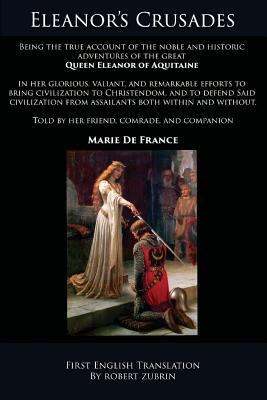Born in the early 1120s, the troubaritz Marie de France was the first European woman to write a book. Her Lais of Marie de France, a set of chivalric tales published circa 1170, was an immediate hit and has been in print in many languages ever since. Eleanor's Crusades, the autobiographical account of her extraordinary youthful adventures as bard to Queen Eleanor of Aquitaine, was lost until its rediscovery in 2005. A remarkable document providing a unique view of the tumultuous rebirth of western civilization at the dawn of the high middle ages, Eleanor's Crusades contains dramatic first-hand accounts of the trial of Peter Abelard, early chivalric tournaments, the Cathar heresy, the building of the first Gothic cathedral, the founding of the University of Paris, the sieges of Poitiers and Valencia, chariot races in Constantinople, the sea battle of Cape Malea, and the spectacular and terrifying expedition now known as the Second Crusade. This is its first English translation.

Born in the early 1120s, the troubaritz Marie de France was the first European woman to write a book. Her Lais of Marie de France, a set of chivalric tales published circa 1170, was an immediate hit and has been in print in many languages ever since. Eleanor's Crusades, the autobiographical account of her extraordinary youthful adventures as bard to Queen Eleanor of Aquitaine, was lost until its rediscovery in 2005. A remarkable document providing a unique view of the tumultuous rebirth of western civilization at the dawn of the high middle ages, Eleanor's Crusades contains dramatic first-hand accounts of the trial of Peter Abelard, early chivalric tournaments, the Cathar heresy, the building of the first Gothic cathedral, the founding of the University of Paris, the sieges of Poitiers and Valencia, chariot races in Constantinople, the sea battle of Cape Malea, and the spectacular and terrifying expedition now known as the Second Crusade. This is its first English translation.